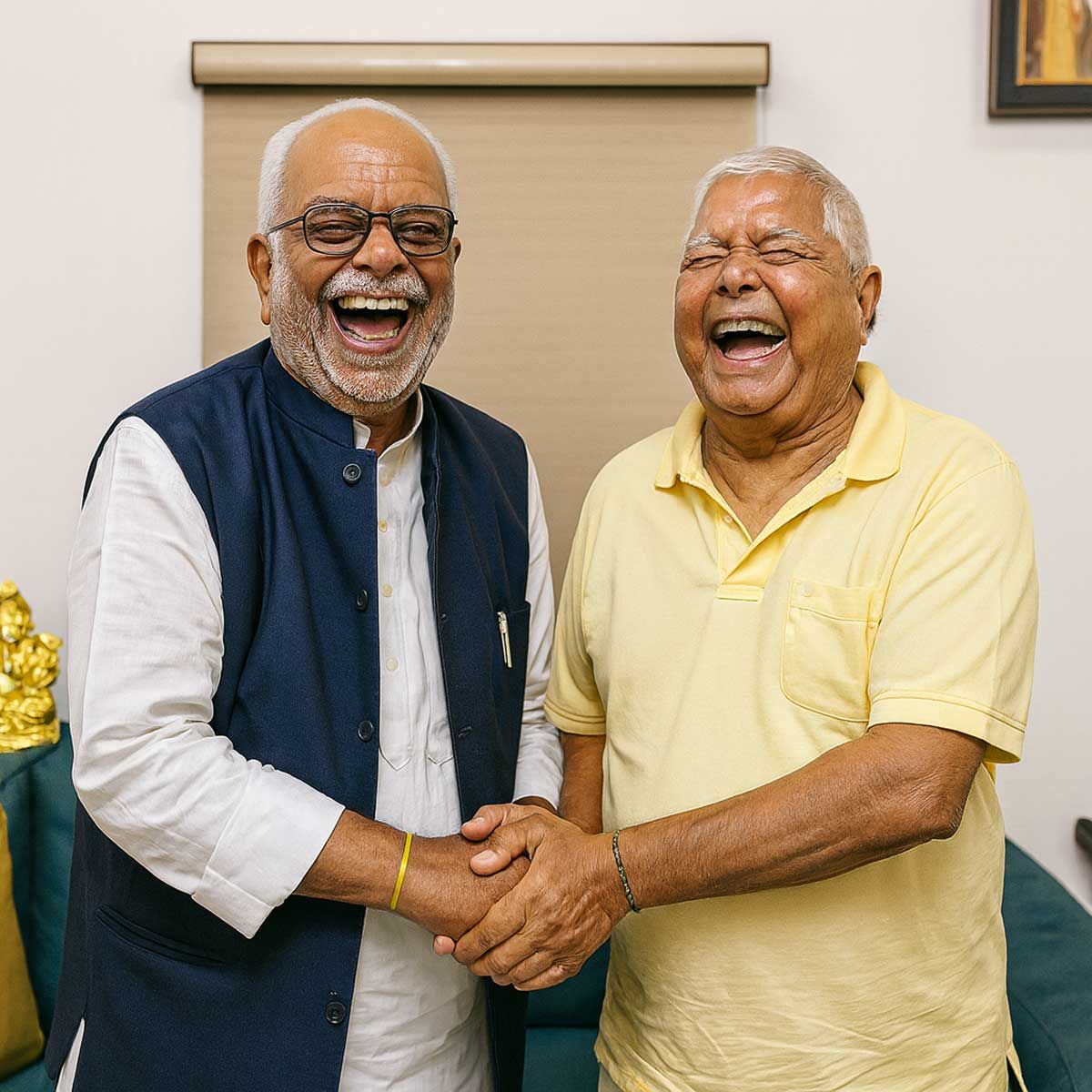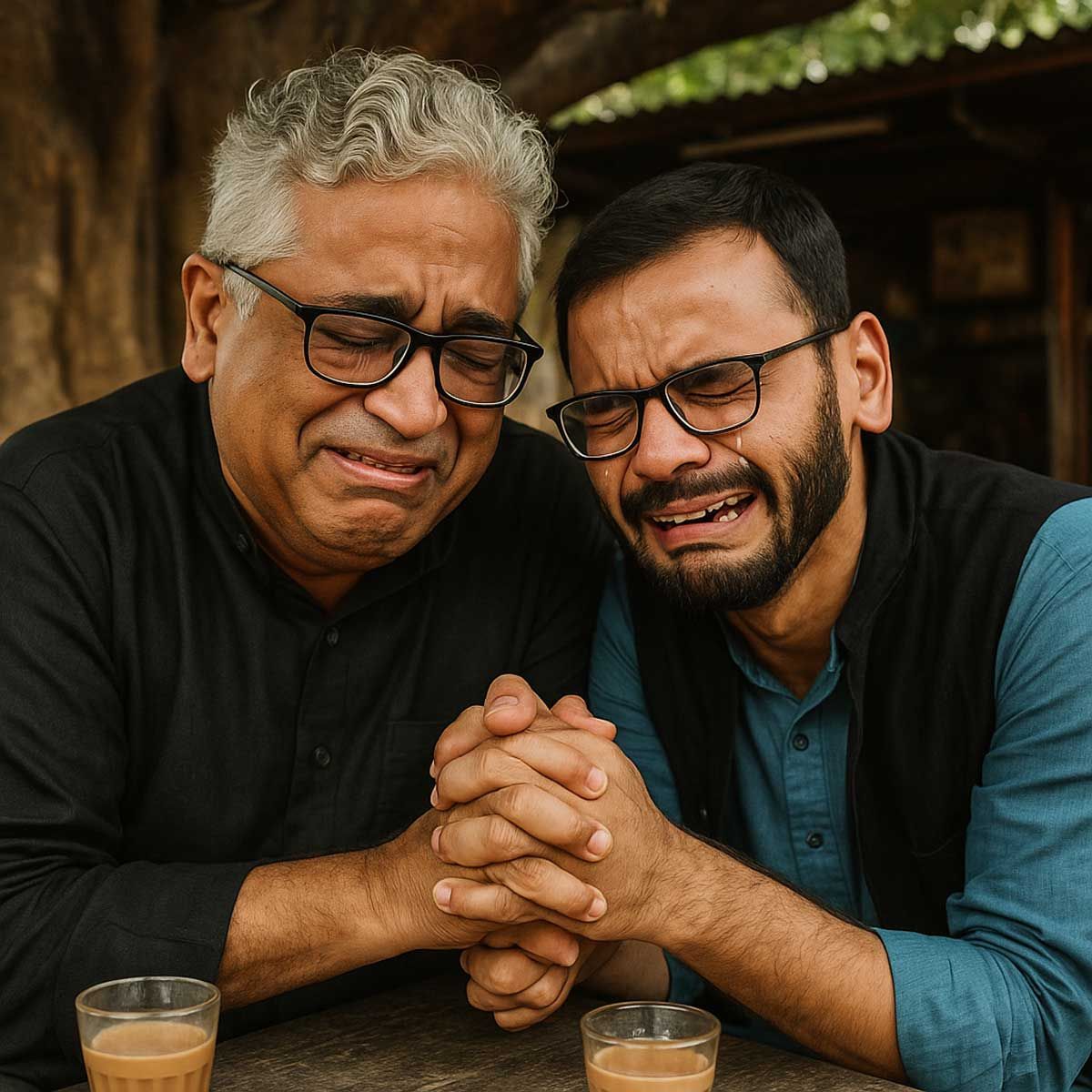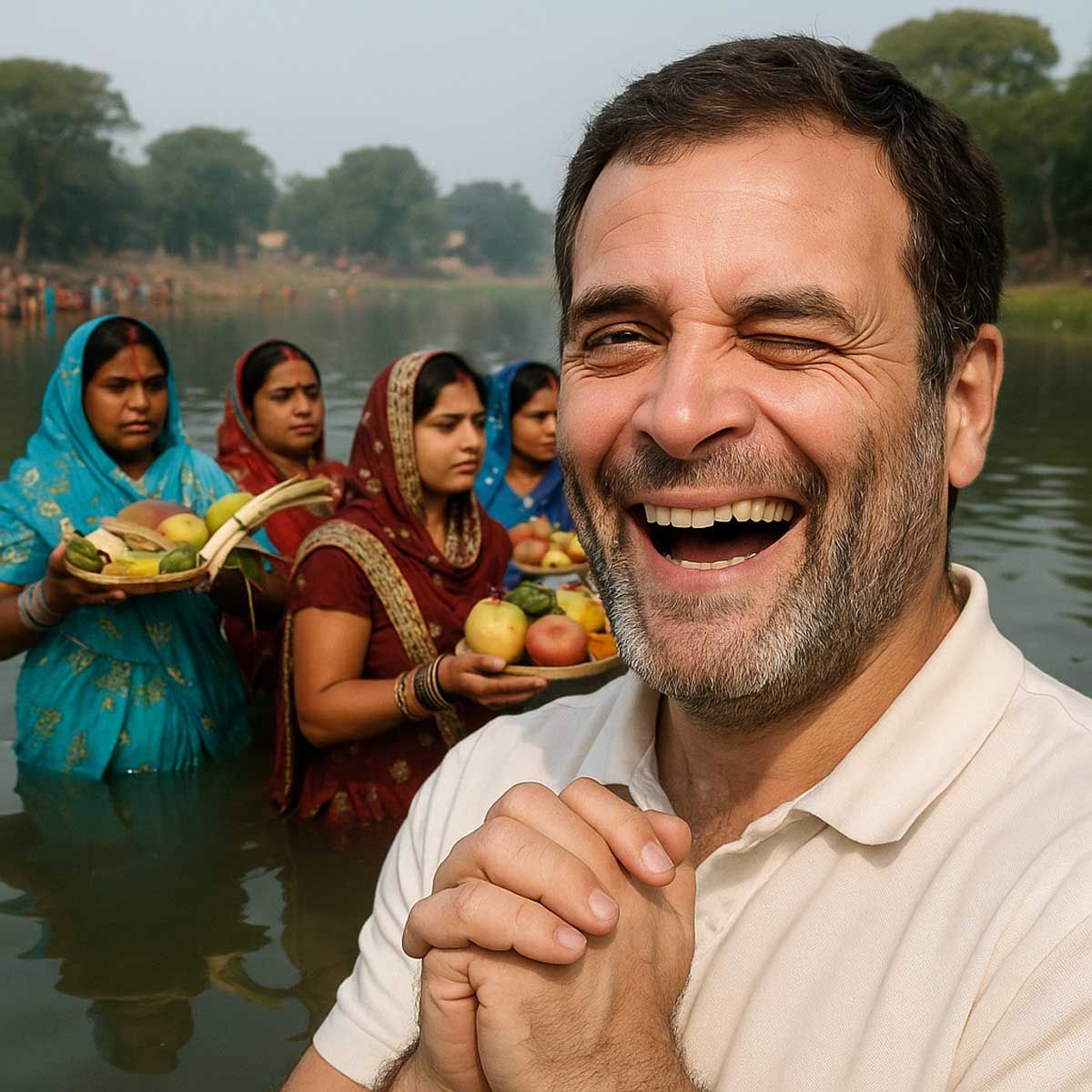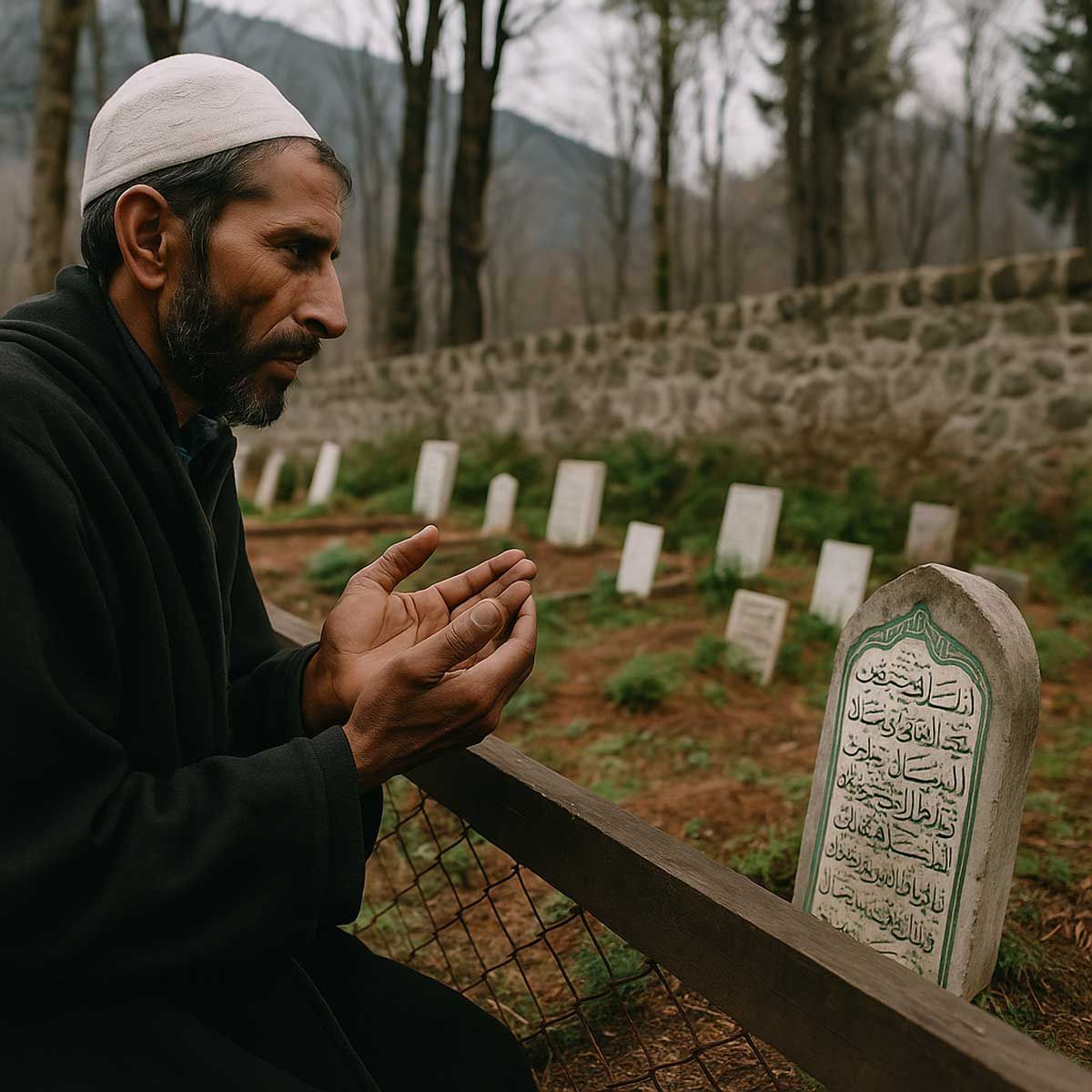More Coverage
Twitter Coverage
Satyaagrah
Written on
Satyaagrah
Written on
Satyaagrah
Written on
Satyaagrah
Written on
Satyaagrah
Written on
JOIN SATYAAGRAH SOCIAL MEDIA
"What can a soldier do when mercy is treason, and he is alone in it?": Chinese troops abducted and killed a selfless Indian Army medic who saved lives of several wounded Chinese soldiers in Galwan clashes, had saved 30+ Indian soldiers lives too

Two years after a savage brawl between Indian and Chinese soldiers put Ladakh’s secluded Galwan Valley in a global spotlight, a new book has revealed details about the fighting -- thus far shrouded in secrecy -- by stringing together first-person accounts of what happened that fateful June night.
India’s Most Fearless 3: New Military Stories of Unimaginable Courage and Sacrifice, authored by HT’s Rahul Singh and India Today TV’s Shiv Aroor, captures disturbing battlefield scenes including how the People’s Liberation Army (PLA) brutally killed a selfless Indian Army medic who saved the lives of several wounded Chinese soldiers, the ferocity of the shock attack by the enemy, tactics employed by PLA to throw Indian soldiers off balance, and the terrifying conditions in which the two foes fought hand-to-hand till death.
Twenty Indian soldiers, including a colonel, were killed in the June 15 skirmish that stretched the India-China bilateral relationship to a breaking point, and the trust deficit it triggered still casts a shadow over the ongoing talks to resolve the border row in Ladakh.
|
China declared that only four of its soldiers were killed, but the book challenges the claim by narrating events that seek to establish that the Chinese were economical with the truth and used a torrent of propaganda and lies to hide their losses.
Published by Penguin Random House India, the book is set to release on August 15 and features the stories of some of India’s most fearless military personnel in their finest hours.
It documents the Galwan clash, for the first time, in the words of Indian soldiers who fought against extraordinary odds, heroically reversed the advance of a numerically superior and treacherous enemy, and lived to tell the story.
The Indian medic, Naik Deepak Singh, was posthumously awarded Vir Chakra, India’s second highest wartime honour, for saving the lives of more than 30 Indian soldiers. That he saved the lives of the enemy too was not known until now.
|
“We have a number for how many Indian lives Deepak saved, but we don’t have a number for how many Chinese men he saved that night,” the book quotes Colonel Ravi Kant, the man who was the second-in-command of 16 Bihar when the clash took place and took charge as commanding officer after Colonel B Santosh Babu was killed in action.
“All I can say is that many of the injured Chinese men who survived that night definitely have Naik Deepak to thank. They were practically abandoned by their forces, while this boy was tending to their wounds. We are trained to take life to protect the country. But what can be higher than saving lives?”
|
The book says as Naik Deepak tended to wounded Chinese soldiers, a rock came like a frisbee out of the mountainside, splintered on the ground next to him, a piece of it striking him on the forehead and knocking him back. An Indian major with a megaphone warned the Chinese angrily that they were targeting a medic administering first aid to injured PLA personnel, the authors write.
Naik Deepak refused to stop, despite being injured. According to men of 16 Bihar quoted in the book, the Chinese soldiers captured Deepak, used him to treat their injured personnel, then killed him.
Naik Deepak’s wife, Rekha, joined the Chennai-based Officers Training Academy in May 2022 and will be commissioned into the Indian Army as a lieutenant in 2023, joining a growing list of proud army wives who have chosen to follow in the footsteps of their husbands after they were killed in combat.
|
She wants to go to the Galwan Valley at least once to see where her husband honourably gave his life treating not just his own but also the enemy.
The book delves deep into the premeditated Chinese charge, how PLA intended to impose a heavy toll on outnumbered Indian soldiers and how the Chinese underestimated a hardy adversary.
“There were less than 400 of us. We would soon discover that the number of Chinese soldiers advancing towards us was maybe three times that. We had been fighting smaller numbers of Chinese for two hours before that. But this was their main force. The all-out assault that the Chinese side was launching against us,” the book quotes Havildar Dharamvir Kumar Singh as saying.
PLA charged without any regard for its own advance elements, say soldiers of 16 Bihar.
“It was like a stampede, and I would not be surprised if some of the Chinese men out front were trampled and injured. That was the intensity of the charge in the darkness. Our men were in smaller numbers, but we were ready,” says Colonel Ravi Kant in the book.
The PLA men were very well equipped, in padded riot gear and helmets, wielding batons fitted with LED incapacitators --- devices that emit sudden bursts of flashing light to stun a person in the darkness and temporarily debilitate them.
“They carried carbon fibre shields which also had that bright flashing light. They would flash that in the dark, and the beam would blind you. That was what they did before the final charge,” says Havildar Dharamvir.
The first-hand accounts of the Indian soldiers expose Beijing’s claims on PLA casualties. The battlefield was littered with dead Chinese soldiers, and through the night, the injured Chinese soldiers were pulled out of the area and taken to PLA positions in the rear, the authors write.
Indian soldiers were instructed to stay away from the PLA’s dead.
|
“Since the time we had assembled in the area in the morning (June 16), we had spotted dead bodies of several Chinese soldiers lying around. Our orders were not to touch them, as the Chinese were expected to retrieve them later,”says Havildar Dharamvir.
One of the men involved in the fiercest combat that night was Naib Subedar Nuduram Soren, also posthumously awarded Vir Chakra. Soldiers who fought alongside him still remember his determined screams as he charged against the enemy.
“There was no stopping him. Naib Subedar Soren fought bravely against the Chinese despite suffering serious injuries. He said PLA had to be pushed back at any cost. Soren saab motivated us so much that we thrashed the Chinese soldiers with even greater zeal,” a soldier from 16 Bihar recounts in the book.
A few feet up the mountainside from where Soren’s body was found was a rocky ledge where an Indian search party spotted a rudimentary catapult system that was used to launch rocks at the Indian Army, the authors write.
On Republic Day 2021, Naik Deepak, Naib Subedar Soren, Havildar K Palani and Sepoy Gurtej Singh were posthumously honoured with Vir Chakra. Havildar Tejinder Singh, an artillery soldier who fought fiercely and survived with injuries, also received a Vir Chakra. Colonel Santosh Babu was bestowed with Maha Vir Chakra (MVC), the country’s second-highest wartime honour.
The choice of medals -- wartime decorations, as opposed to the peacetime Shaurya Chakra and Kirti Chakra awards -- was a message from the Indian Army and government that the situation in Ladakh was being formally regarded as a live conflict between the two countries.
Galwan clash hero's wife is now a lieutenant in the army; Rekha Singh fulfills her husband's dream
A wife has fulfilled a husband's dream -- of holding the rank of a lieutenant in the Indian Army. But it's not an ordinary story.
Rekha Singh's husband Lance Naik and Veera Chakra awardee Shahid Deepak Singh was killed in a skirmish with the Chinese People’s Liberation Army (PLA) in June 2020. And, just two years later, she has now become a lieutenant in the Indian Army.
Rekha Singh chose to leave her teaching job and pursue a career in the armed forces to carry forward the legacy of her husband. She will start her training in Chennai from May 28.
It was her husband’s dream that pushed her to strive hard to make it to the Indian Army. Rekha Singh was married to Naik Deepak Singh of the 16th Battalion of Bihar Regiment.
Deepak Singh was killed in action in the Galwan Valley on June 15, 2020, while fighting Chinese soldiers. For his bravery, Deepak Singh was posthumously awarded the hallowed Vir Chakra by President Ram Nath Kovind.
|
Rekha and Deepak were just 15 months into the marriage when she received the devastating news of his death. But her patriotism toward her country drove her to join the Army.
While speaking to India Today, Rekha Singh said that it was due to the sorrow of her husband's martyrdom and the feeling of patriotism that she made up her mind to leave the job of a teacher and become an officer in the army.
She further revealed how difficult it was to begin her journey and prepare for the entrance exam to join the army. She said that despite taking physical training she wasn’t successful on the first attempt.
However, this didn’t discourage her and she kept preparing, she was successful in her second attempt and holds the rank of lieutenant in the Indian Army.
References:
hindustantimes.com
 Support Us
Support Us
Satyagraha was born from the heart of our land, with an undying aim to unveil the true essence of Bharat. It seeks to illuminate the hidden tales of our valiant freedom fighters and the rich chronicles that haven't yet sung their complete melody in the mainstream.
While platforms like NDTV and 'The Wire' effortlessly garner funds under the banner of safeguarding democracy, we at Satyagraha walk a different path. Our strength and resonance come from you. In this journey to weave a stronger Bharat, every little contribution amplifies our voice. Let's come together, contribute as you can, and champion the true spirit of our nation.
 |  |  |
| ICICI Bank of Satyaagrah | Razorpay Bank of Satyaagrah | PayPal Bank of Satyaagrah - For International Payments |
If all above doesn't work, then try the LINK below:
Please share the article on other platforms
DISCLAIMER: The author is solely responsible for the views expressed in this article. The author carries the responsibility for citing and/or licensing of images utilized within the text. The website also frequently uses non-commercial images for representational purposes only in line with the article. We are not responsible for the authenticity of such images. If some images have a copyright issue, we request the person/entity to contact us at This email address is being protected from spambots. You need JavaScript enabled to view it. and we will take the necessary actions to resolve the issue.
Related Articles
- "Grant what thou commandest and then command what thou wilt": India's military set for a historic revamp - The first test-bed ITC slated for a debut this August, revolutionizing the armed forces' structure, other commands to follow ‘One Border One Force’
- "As a young citizen of India, armed with technology and love for my nation, I realize, a small aim is a crime": Recurring incidents of MiG-21 plane crash forced IAF to retire 51 Squadron Mig-21 Bison aircraft by Sept this year and the entire fleet by 2025
- "In the new era, thought itself will be transmitted by radio": Indian Army excited for home-grown ‘Tactical LAN Radio’ - a state-of-the-art high bandwidth backhaul wireless radio equipment for the provisioning of reliable and failsafe communication
- "21 new roads, 64 bridges, tunnels, airstrips & helipads": India fortifies its frontier, unveiling mega projects along the China border, heralded by Raksha Mantri Rajnath Singh, not only amplifying national security but fostering connectivity and unity
- "Mind, once stretched by a new idea, never returns to its original dimensions": Indian Army received the patent for the ‘Accident Prevention System based on Artificial Intelligence’ developed indigenously by Research & Development within the organisation
- “It is God’s duty to forgive the enemies, but it’s our duty to convene a meeting between the two”: Modi government allows Indian defence forces to get emergency powers to acquire critical weapon systems through a fast-track route without the MoD approval
- Nehru relied on diplomacy and ignored the armed forces causing defeat in the 1962 India-China war: War-hero Air Marshal Denzil Keelor (Retd)
- NHAI barred the Bhuni toll agency from future bids, imposed a ₹20 lakh penalty after Army jawan Kapil Kavad was assaulted in Meerut, six accused arrested, and enraged villagers stormed the plaza demanding justice for the soldier humiliated on duty
- Lt. Col. Rishi Rajalakshmi, shot in the face in the 2017 Pulwama Tral encounter with his nose, jaw, and cheek shattered, returned scarred but unbroken to serve again, and for this indomitable courage Gen. Bipin Rawat hailed him as “the most fearless man”
- Pinned to a pole and savagely beaten at Meerut’s Bhuni Toll Plaza, Army jawan Kapil Kavad’s ordeal echoed the earlier humiliation of Lt Col Ritesh by SpiceJet staff at Srinagar Airport, a shocking reminder that India’s defenders face brutality at home
- "You think those dogs will not be in heaven! I tell you they will be there long before any of us”: Sharp-sighted, agile, with touch of Royalty, ‘Made in India’ Mudhol Hounds joins PM Modi’s security, earlier was part of Chhatrapati Shivaji Maharaj’s army
- China attacked India just three years after PM Nehru reduced the defence expenditure by Rs 25 crores: Union Budget 1959
- Srinagar: Top LeT commander, 1 Pakistani terrorist killed in encounter, AK-47s recovered
- “This will remain the land of the free so long as it is the home of the brave”: 21-years-old Rifleman Jaswant Singh Rawat martyred in the Indo-China war, held his post for 72 hours and single-handedly killed 300 Chinese soldiers to save Arunachal Pradesh
- Indian Army pacing towards self-reliance under 'Atmanirbhar Bharat Abhiyaan’ campaign: Indigenisation of defence manufacturing is helping to build a new and strong India to keep neighbour aggression in check




























